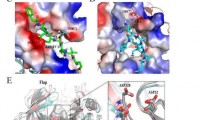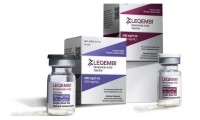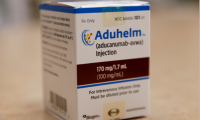-
Medicare details plan to cover Alzheimer’s treatments
- Source: drugdu
- 113
- June 4, 2023
-
Medicare holds firm on Alzheimer’s drug coverage policy
- Source: drugdu
- 105
- June 3, 2023
-
Researchers discover novel ‘Shanghai APP’ mutation in late-onset Alzheimer’s disease
- Source: drugdu
- 148
- May 16, 2023
-
Otsuka, Lundbeck’s Rexulti nabs new use in Alzheimer’s disease agitation
- Source: drugdu
- 111
- May 13, 2023
-
Eli Lilly’s Alzheimer’s drug shown to significantly slow disease progression in phase 3 trial
- Source: drugdu
- 139
- May 7, 2023
-
Membrane lipid remodeling alters key enzyme involved in Alzheimer’s
- Source: drugdu
- 122
- May 6, 2023
-
Medicare will cover Leqembi for all patients if FDA approves drug, CMS chief says
- Source: drugdu
- 119
- May 1, 2023
-
Spherix
- Source: drugdu
- 133
- April 14, 2023
-
FDA approves controversial new Alzheimer’s drug
- Source: drugdu
- 163
- April 12, 2023
-
US health officials aim to ‘transform’ Alzheimer’s disease research with $300 million data platform
- Source: drugdu
- 144
- April 12, 2023
your submission has already been received.
OK
Subscribe
Please enter a valid Email address!
Submit
The most relevant industry news & insight will be sent to you every two weeks.













